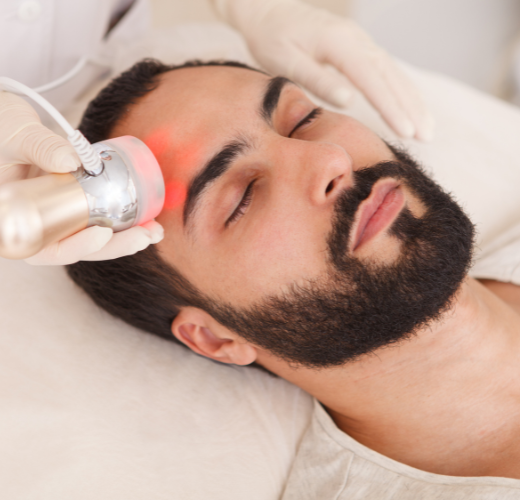6 TikTok skincare hacks to avoid

You can find so many respected, well-educated, properly-trained dermatologists and science-driven skincare brands on social media (I follow too many to count!). I applaud the physicians and brands who understand that everyone’s skin has unique needs and share valuable educational content rather than telling all of their followers to do the same thing to their skin.
What I don’t like: Influencers who have no background or experience in skincare whatsoever and tell their followers that they need “product XYZ” (because they are often being paid to say that) or to do this-that-and-the-other when in fact, it may not be suitable for your skin. Even more, their “tips” may be downright dangerous.
Here, my top six (current) social-media skincare hacks to avoid.
Using tape to prevent wrinkles
Wrinkle “tapes” have been around longer that I have, and they still aren’t a good idea. The adhesives in these tapes can cause contact dermatitis that leads to redness and skin irritation. You’re much better off with toxin injections that can minimize motion-related wrinkles for three to six months—and without actually having to put tape on your face.
Calamine lotion as a facial skincare treatment
This one went viral this past summer after totally unqualified “randoms” (sorry, not sorry) said it made a great makeup primer, acne-scar treatment and even sunscreen replacement. No! Though presented as a very inexpensive solution for a variety of skin concerns, calamine lotion is not FDA-approved for any of these uses, and as an astringent, long-term use over a large area of skin is likely to cause dryness and disrupt the skin barrier. In terms of acne scars, calamine does contain phenol, which is generally reserved for deeper, professional peels. However, this is not an ingredient anyone should be using every day—and definitely not while pregnant or breastfeeding. (It can also trigger eczema, rosacea and psoriasis.)
Skin tag removal
If you have just one or several skin tags, your dermatologist is the only appropriate person to remove them. (Hands off!) Aside from DIY tips found on social media, the FDA has recently cracked down on products that claim to remove skin tags, moles and other growths. If you take matters into your own hands, you risk scarring, infection and even delayed skin cancer diagnosis. Play it smart and let your dermatologist take care of these concerns safely and effectively.
Using aspirin to create an acne treatment
OK, aspirin is distantly related to the salicylic acid found in acne skincare treatments—but that doesn’t mean you should be crushing pills, adding water and applying it your face. You’ll find posts that suggest using this concoction as a spot treatment for specific blemishes or even all over your face, but this is a hard no. It will not clear pores, reduce oil production or prevent future breakouts, but it can cause chemical burns, dryness and irritation. Please, stick to off-the-shelf products that are formulated to improve acne.
Anti-perspirant on your face
Someone apparently came up with the idea to apply anti-perspirant to their face to prevent sweating and makeup from melting. (And it caught on.) Deodorants and anti-perspirants contain so many ingredients that can cause contact dermatitis and irritate sensitive facial skin. These products are meant for your armpits, not your face!
Skin cycling and skin fasting
This is a tricky one, because there is some merit to limiting your skin’s exposure to potentially irritating skincare ingredients. Skin cycling involves taking a break from certain ingredients on specific days or night of the week, such as exfoliating acids or retinol. It can certainly be beneficial to avoid combining too many aggressive ingredients in one day or skincare session. But the concept of skin fasting suggests avoiding allskincare products for a 24-hour period once or twice a week to allow the skin’s natural oils to “reset” the protective barrier. I believe this is a bit extreme, and never advise skipping sunscreen—not even for one day, especially if you’re still using retinol as part of your skin-cycling routine. (Check out this Shape article I contributed to.)


